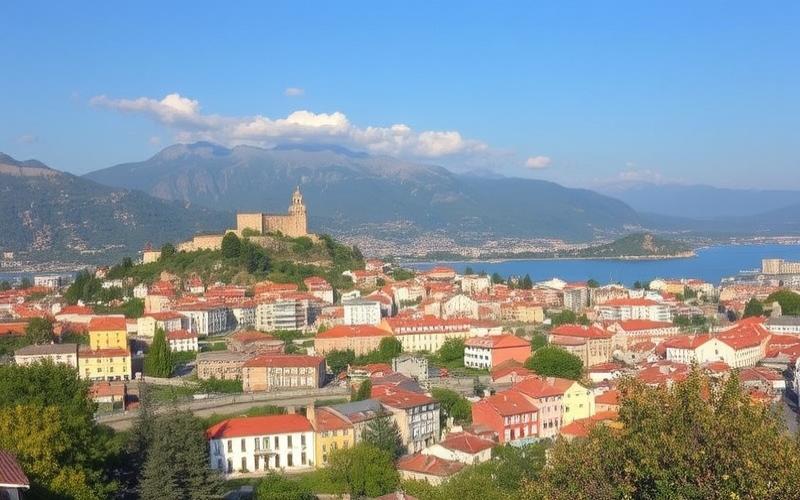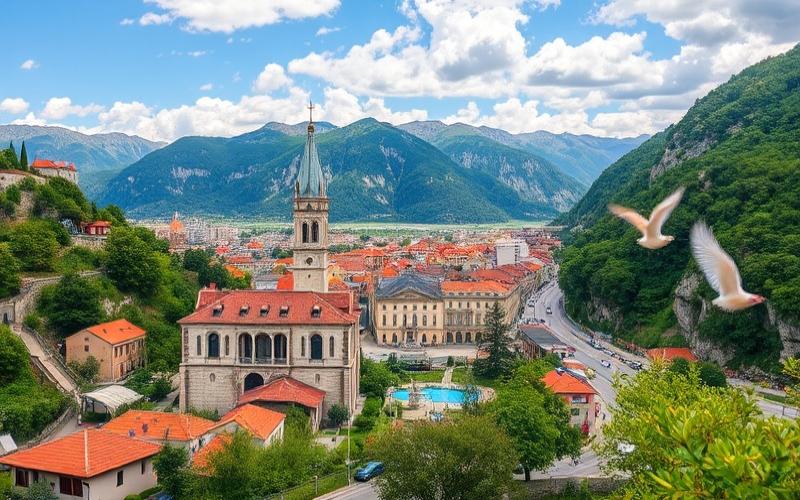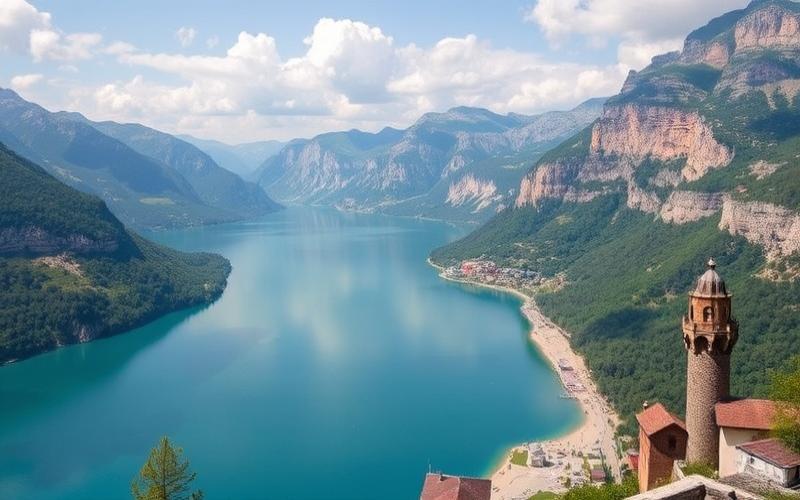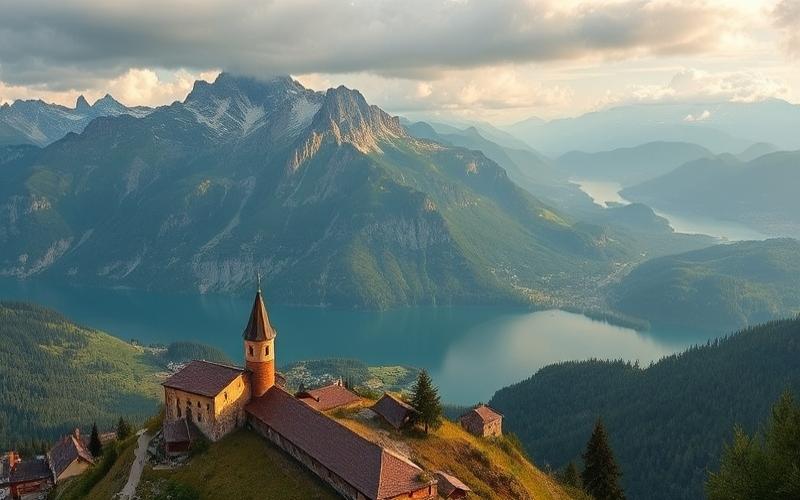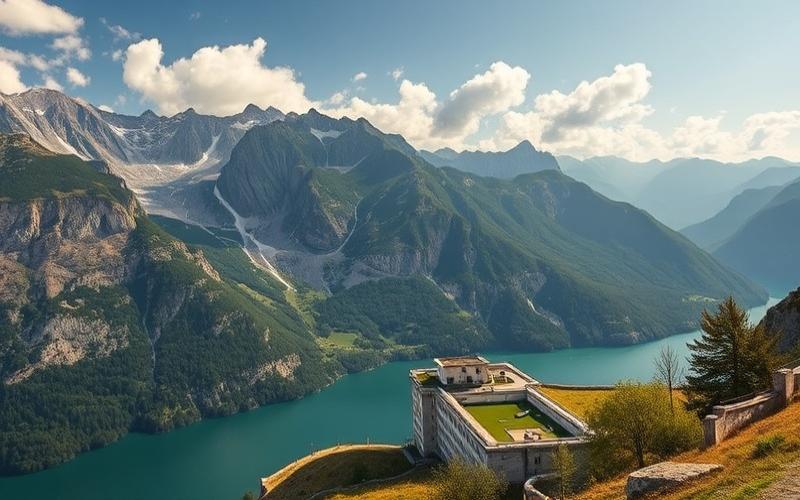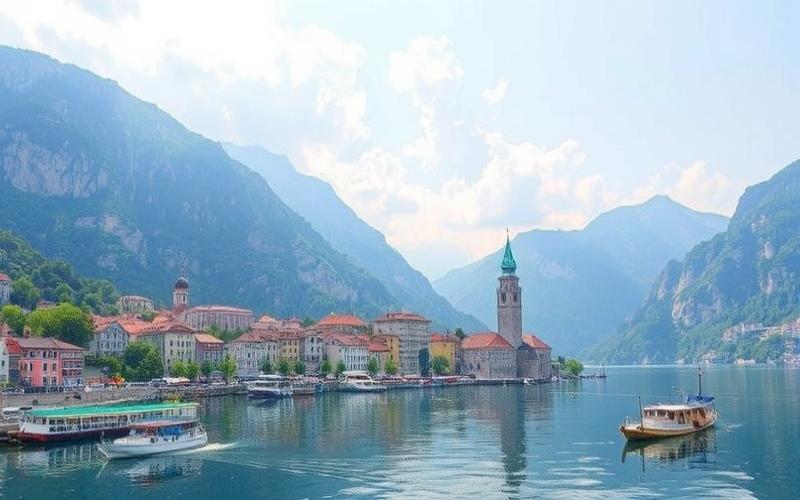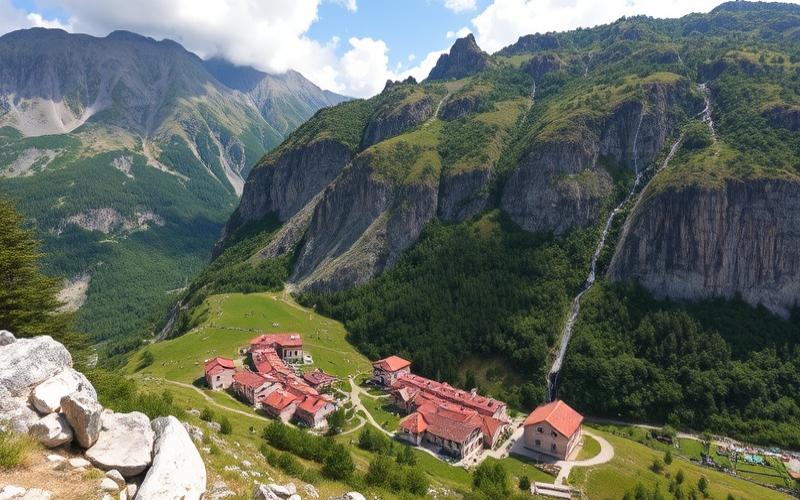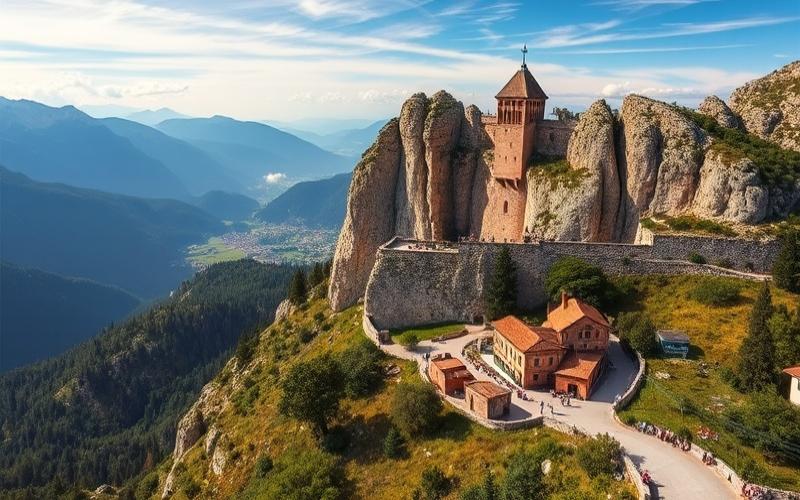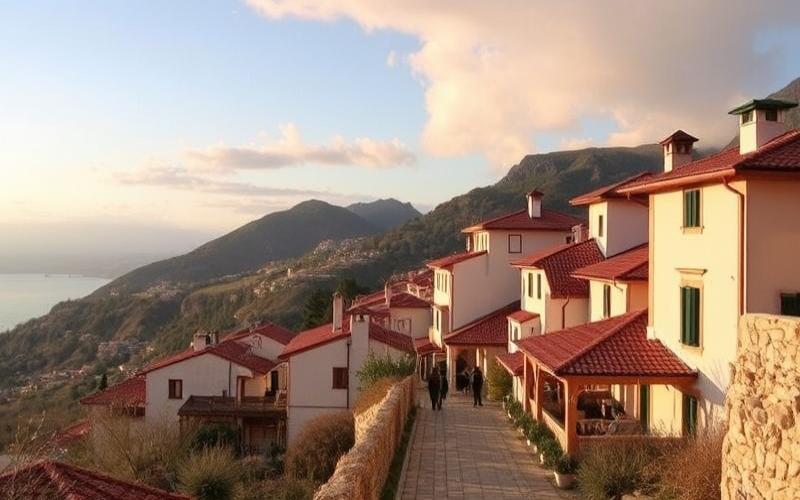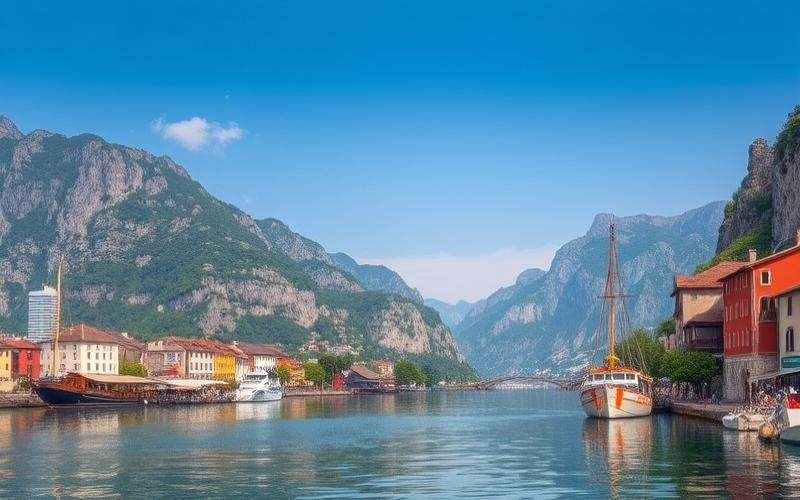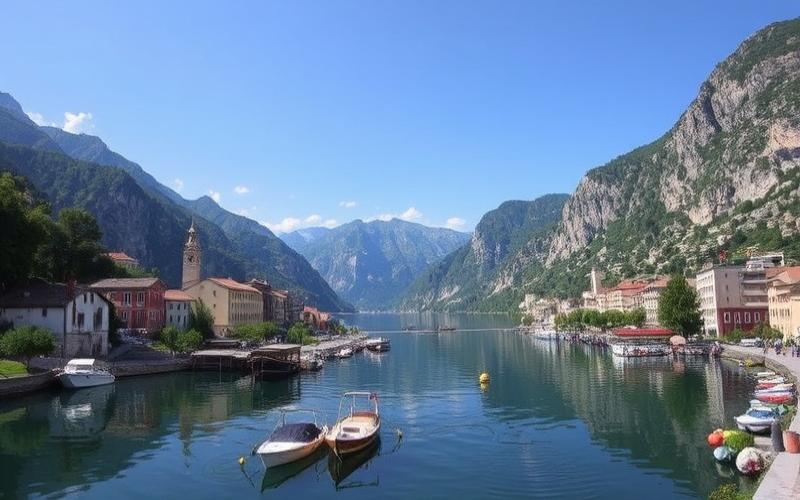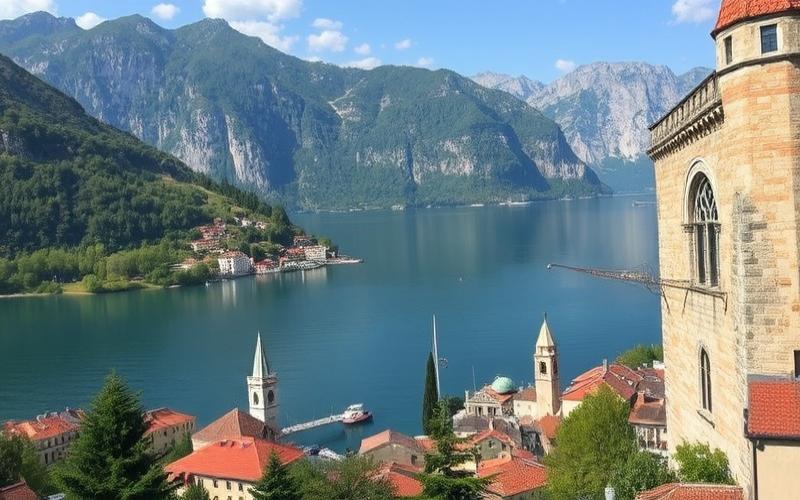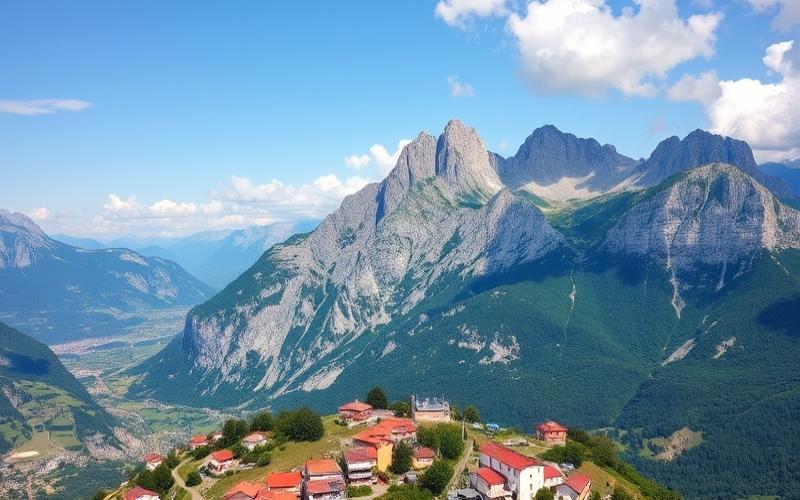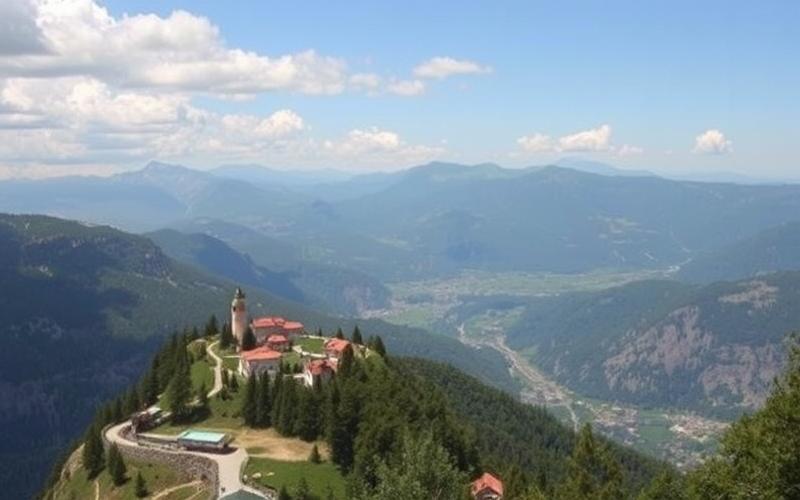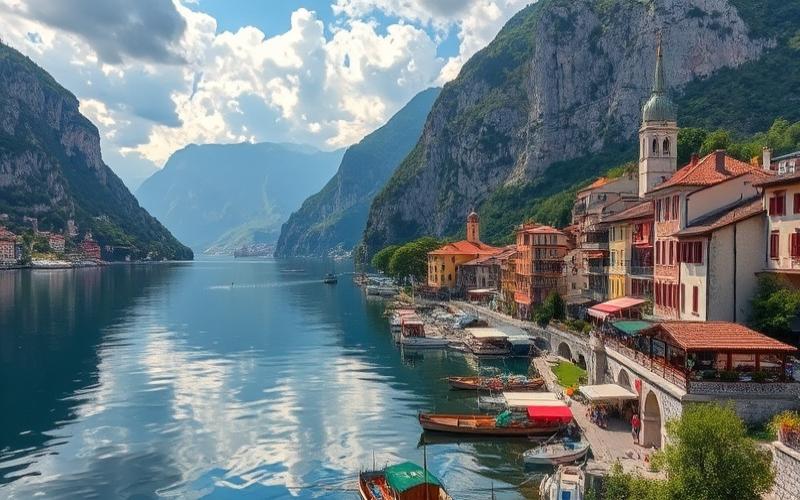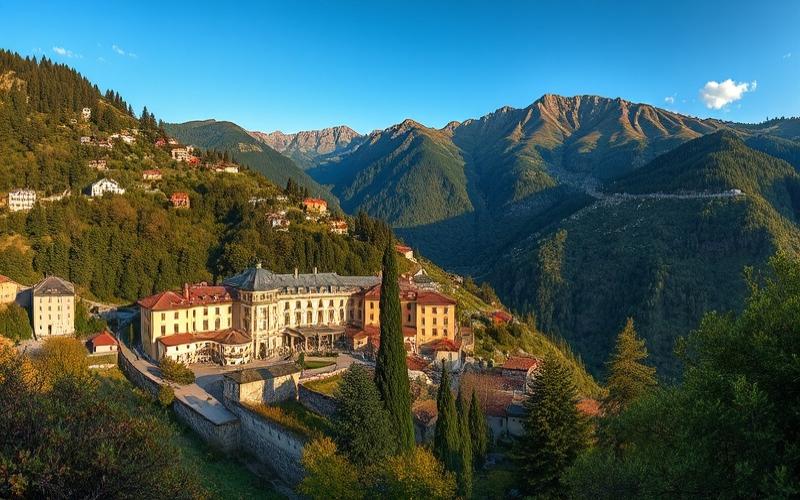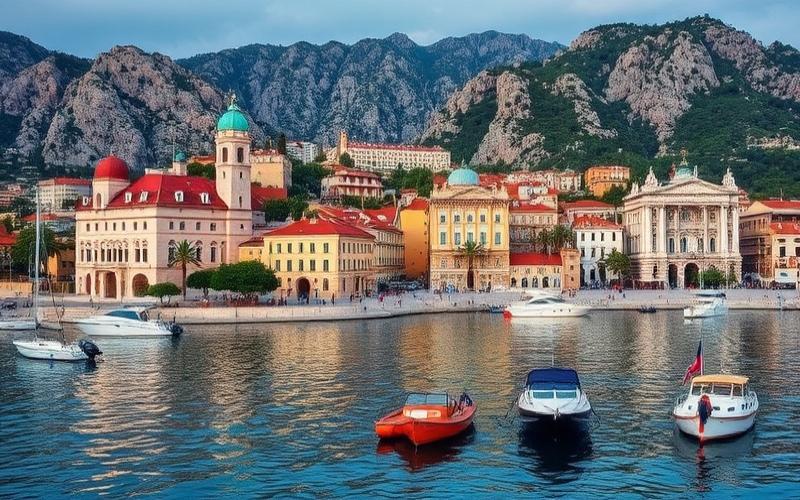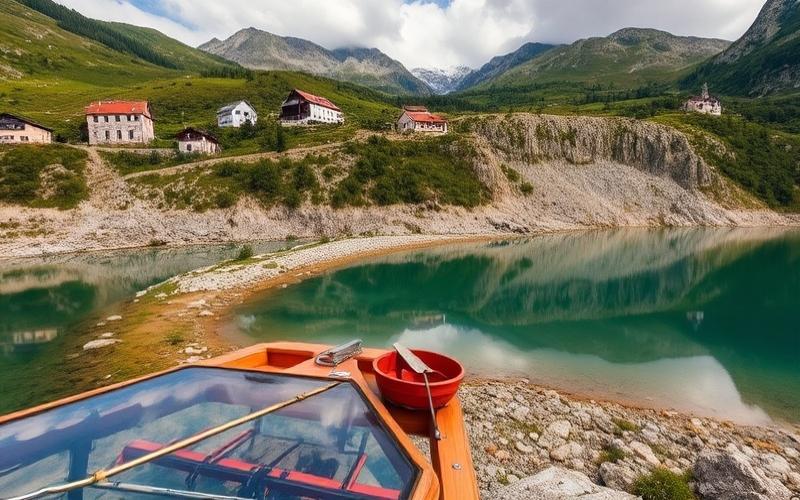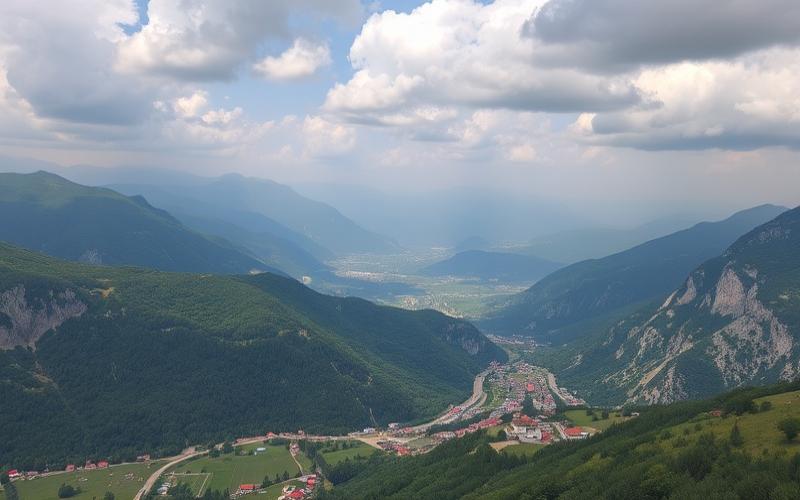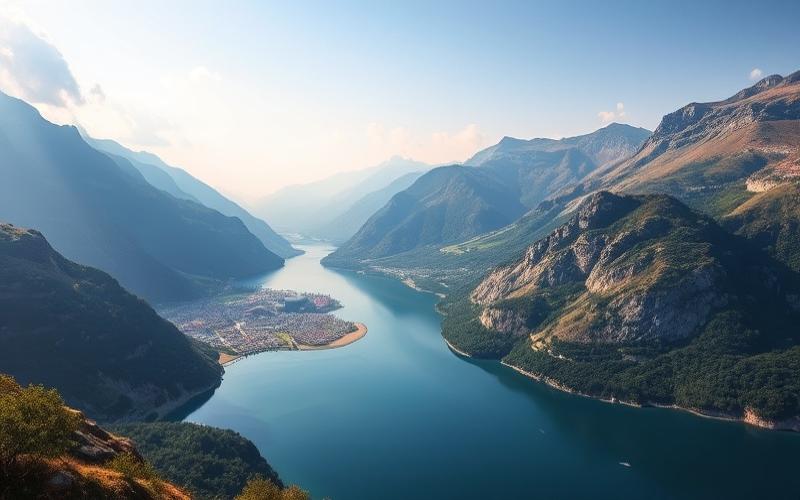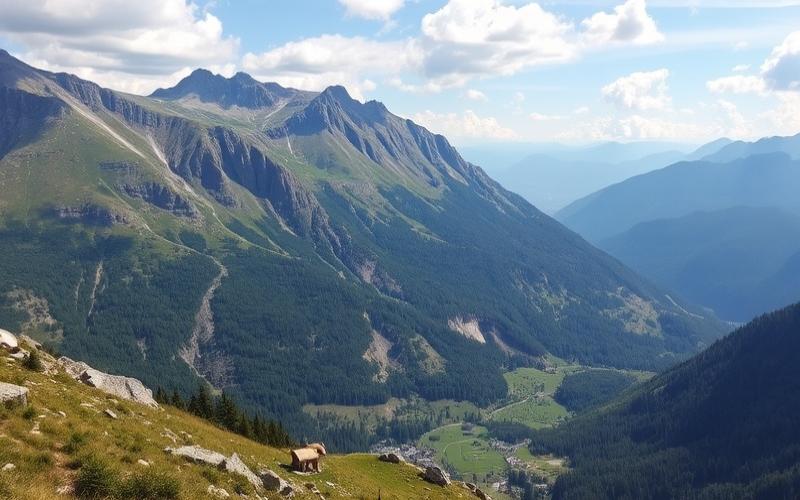
 Published on and written by Cyril Jarnias
Published on and written by Cyril Jarnias
Montenegro, the small gem of the Balkans, is attracting an increasing number of foreign real estate investors drawn by its breathtaking landscapes and growth potential. Whether you dream of a villa with a view of the Adriatic Sea or an apartment in the charming capital Podgorica, skillfully negotiating your real estate purchase in Montenegro can lead to substantial savings. Here is a comprehensive guide to help you navigate this promising market and get the best possible deal.
Secrets to Successful Negotiation in Montenegro
Negotiation is a subtle art, particularly in a country like Montenegro where business practices may differ from what you’re used to. To succeed, it’s essential to adopt a strategic and culturally adapted approach.
Establish a Trust Relationship: Montenegrins place great importance on personal relationships in business. Take the time to build a connection with the seller or real estate agent. Sharing a coffee or having a friendly conversation can greatly facilitate subsequent negotiations.
Master the Art of Patience: Negotiations in Montenegro may take longer than in Western Europe. Don’t rush and be prepared for lengthy discussions. This patient approach can often lead to better terms.
Do Your Research: Before starting negotiations, make sure you’re well-informed about local market prices. Prices in Montenegro vary significantly by region. For example, properties in Budva or Kotor can cost up to €3,500 per square meter, while in less touristy areas, prices can be significantly lower.
Be Flexible on Terms: Sometimes getting a better price may involve making concessions on other aspects of the transaction. Be open to creative arrangements, such as a staggered payment schedule or taking on certain renovation work.
Good to Know:
Negotiation in Montenegro is a process that requires time and finesse. Cultivate patience, build strong relationships, and remain flexible to maximize your chances of success.
Decoding the Montenegrin Real Estate Market
To negotiate effectively, it’s crucial to understand the dynamics of the local real estate market. Montenegro presents unique characteristics that influence prices and trends.
A Growing Market: The Montenegrin real estate market is experiencing steady growth, driven by infrastructure development and increasing tourism. This positive trend creates opportunities for savvy investors.
Marked Regional Disparities: Prices vary considerably by region. Coastal areas like Budva, Kotor, and Tivat are the most expensive, with prices reaching €2,000 to €3,500 per square meter. Inland, particularly in Podgorica, prices are generally more affordable.
Influence of Foreign Buyers: The market is heavily influenced by foreign investors, particularly Europeans and Russians. This international demand can create upward pressure on prices in certain regions.
Infrastructure Development: The Montenegrin government is heavily investing in infrastructure, particularly transportation. These improvements are making certain regions more accessible and therefore more attractive for investment.
Market Seasonality: The Montenegrin real estate market can experience seasonal fluctuations, particularly in tourist areas. Prices may be higher during the summer high season.
Good to Know:
The Montenegrin real estate market offers varied opportunities, with marked regional disparities. A thorough understanding of these dynamics will allow you to better target your investment and negotiate more effectively.
Pitfalls to Avoid During Your Acquisition in Montenegro
Although the Montenegrin real estate market is attractive, it contains certain pitfalls that foreign buyers should know how to avoid to secure their investment.
Don’t Neglect Legal Checks: The Montenegrin legal system can be complex for foreigners. Make sure to hire a reputable local lawyer to verify all legal aspects of the transaction, particularly property titles and building permits.
Beware of Too-Good-to-Be-True Offers: If an offer seems too good to be true, it probably is. Be particularly vigilant with properties offered at prices significantly below market value.
Watch Out for Hidden Costs: Beyond the purchase price, don’t forget to account for all associated acquisition costs, such as taxes (3% of the property value), notary fees, and potential renovation costs.
Don’t Rush: Take the time to properly evaluate several properties and understand the local market before committing. A hasty decision could cause you to miss better opportunities.
Be Cautious with Off-Plan Projects: If you’re considering buying off-plan, make sure of the developer’s financial stability and carefully check all contractual documents.
Good to Know:
Caution is advised when purchasing real estate in Montenegro. Hire trusted local professionals, take the time to understand all aspects of the transaction, and remain vigilant about offers that seem too good to be true.
Maximize Your Negotiating Power
To get the best possible deal on your real estate purchase in Montenegro, it’s essential to maximize your negotiating power. Here are some effective strategies to strengthen your position.
Get Your Finances in Order: Being able to demonstrate that you have the means to finance the purchase will give you a considerable advantage in negotiations. If possible, obtain pre-approval for a loan before starting your search.
Master the Information: The more you know about the local market and the property that interests you, the stronger your negotiating position will be. Research price history in the neighborhood, upcoming development projects, and market trends.
Strategic Timing: The timing of your offer can influence its success. For example, the low tourist season may be conducive to more favorable negotiations in coastal areas.
Be Prepared to Walk Away: Don’t be afraid to walk away if the terms don’t suit you. This willingness to leave can sometimes encourage the seller to reconsider their position.
Use a Local Real Estate Agent: A good agent who knows the Montenegrin market well can be a valuable asset in your negotiations, helping you navigate cultural subtleties and identify the best opportunities.
Good to Know:
Your negotiating power relies on a combination of financial preparation, market knowledge, and strategy. By mastering these elements, you significantly increase your chances of obtaining a favorable agreement.
Keys to Effective Due Diligence
Due diligence is a crucial step in any real estate purchase, particularly in a foreign country like Montenegro. Thorough verification can save you from future inconveniences.
Property Title Verification: Ensure that the seller is indeed the legal owner of the property and that there are no disputes or encumbrances on the property. In Montenegro, this information is available from the local cadastre.
Technical Inspection: Have a detailed inspection of the property conducted by a qualified professional. This will allow you to identify any potential structural or maintenance issues that could affect the property’s value.
Permit Verification: Ensure that all constructions and modifications were carried out with the necessary authorizations. Illegal constructions are a recurring problem in Montenegro and can lead to legal complications.
Environmental Assessment: Check for potential environmental risks, especially if the property is located near the coast or in an area of rapid development.
Analysis of Fees and Taxes: Inquire about all fees and taxes associated with the property, including property taxes and condominium fees where applicable.
Good to Know:
Rigorous due diligence is your best protection against unpleasant surprises. Don’t hesitate to hire local professionals to assist you in this crucial process.
Financing and Tax Aspects: What You Need to Know
Understanding financing options and the tax implications of your real estate purchase in Montenegro is essential to optimizing your investment.
Financing Options: Although mortgages are available in Montenegro, the terms may be less favorable than in your home country. Explore both local and international financing options to find the best solution.
Attractive Tax Rates: Montenegro offers relatively low tax rates, which can make real estate investment particularly attractive. Property tax ranges from 0.1% to 1% of the property’s value, depending on its location and type.
Real Estate Transaction Tax: When purchasing, you’ll need to pay a property transfer tax of 3% of the property’s value. This tax is typically the buyer’s responsibility.
Rental Income: If you plan to rent out your property, be aware that rental income is subject to tax in Montenegro. The tax rate on this income is currently 9%.
Estate Planning: Consider the long-term implications of your investment, particularly regarding inheritance. Montenegro has specific laws concerning the inheritance of real estate by foreigners.
Good to Know:
Montenegro’s advantageous tax regime can make real estate investment particularly attractive. However, it’s crucial to fully understand all financial and tax implications to optimize your long-term investment.
Understanding cultural nuances can make all the difference in your real estate negotiations in Montenegro. Here are some key points to keep in mind.
Importance of Personal Relationships: Montenegrins place great value on personal relationships in business. Taking the time to build rapport with sellers or agents can greatly facilitate negotiations.
Concept of Time: The pace of business may be slower than in Western Europe. Patience is an appreciated virtue, and rushing things can be counterproductive.
Indirect Communication: Montenegrins may sometimes communicate indirectly. Learn to read between the lines and interpret nonverbal signals.
Hospitality: Hospitality is a fundamental value in Montenegro. Don’t be surprised if you’re offered coffee or a meal during discussions. Accepting these gestures is a good way to build a relationship.
Respect for Traditions: Show respect for local traditions and history. This can help you gain the trust of your counterparts.
Good to Know:
Adapting to Montenegro’s cultural specificities can greatly facilitate your real estate negotiations. Take the time to understand and respect local customs to create strong and fruitful business relationships.
Future Outlook for the Montenegrin Real Estate Market
Understanding future trends in the Montenegrin real estate market can help you make informed investment decisions and better negotiate your purchases.
Continued Tourism Growth: Montenegro’s tourism sector is experiencing steady growth, which should continue to stimulate real estate demand, particularly in coastal areas. This trend could lead to price appreciation in the coming years.
Infrastructure Development: The Montenegrin government is heavily investing in infrastructure, particularly transportation. These improvements should make certain regions more accessible and therefore more attractive for real estate investment.
European Integration: Montenegro is a candidate for European Union membership. If this accession materializes, it could have a positive impact on the real estate market in terms of stability and attractiveness to foreign investors.
Economic Diversification: The country is seeking to diversify its economy beyond tourism, which could create new investment opportunities in different regions of the country.
Sustainable Development: There is a growing trend toward more sustainable and ecological real estate projects, which could influence future developments and property values.
Good to Know:
The Montenegrin real estate market shows promising prospects, supported by tourism growth, infrastructure development, and the country’s European aspirations. These trends could offer interesting opportunities for long-term investors.
In conclusion, negotiating a real estate purchase in Montenegro requires a strategic approach, thorough understanding of the local market, and sensitivity to cultural nuances. By following the advice presented in this article, you’ll be well-equipped to navigate this promising market and secure your real estate investment in this magnificent Balkan country.
Disclaimer: The information provided on this website is for informational purposes only and does not constitute financial, legal, or professional advice. We encourage you to consult qualified experts before making any investment, real estate, or expatriation decisions. Although we strive to maintain up-to-date and accurate information, we do not guarantee the completeness, accuracy, or timeliness of the proposed content. As investment and expatriation involve risks, we disclaim any liability for potential losses or damages arising from the use of this site. Your use of this site confirms your acceptance of these terms and your understanding of the associated risks.

